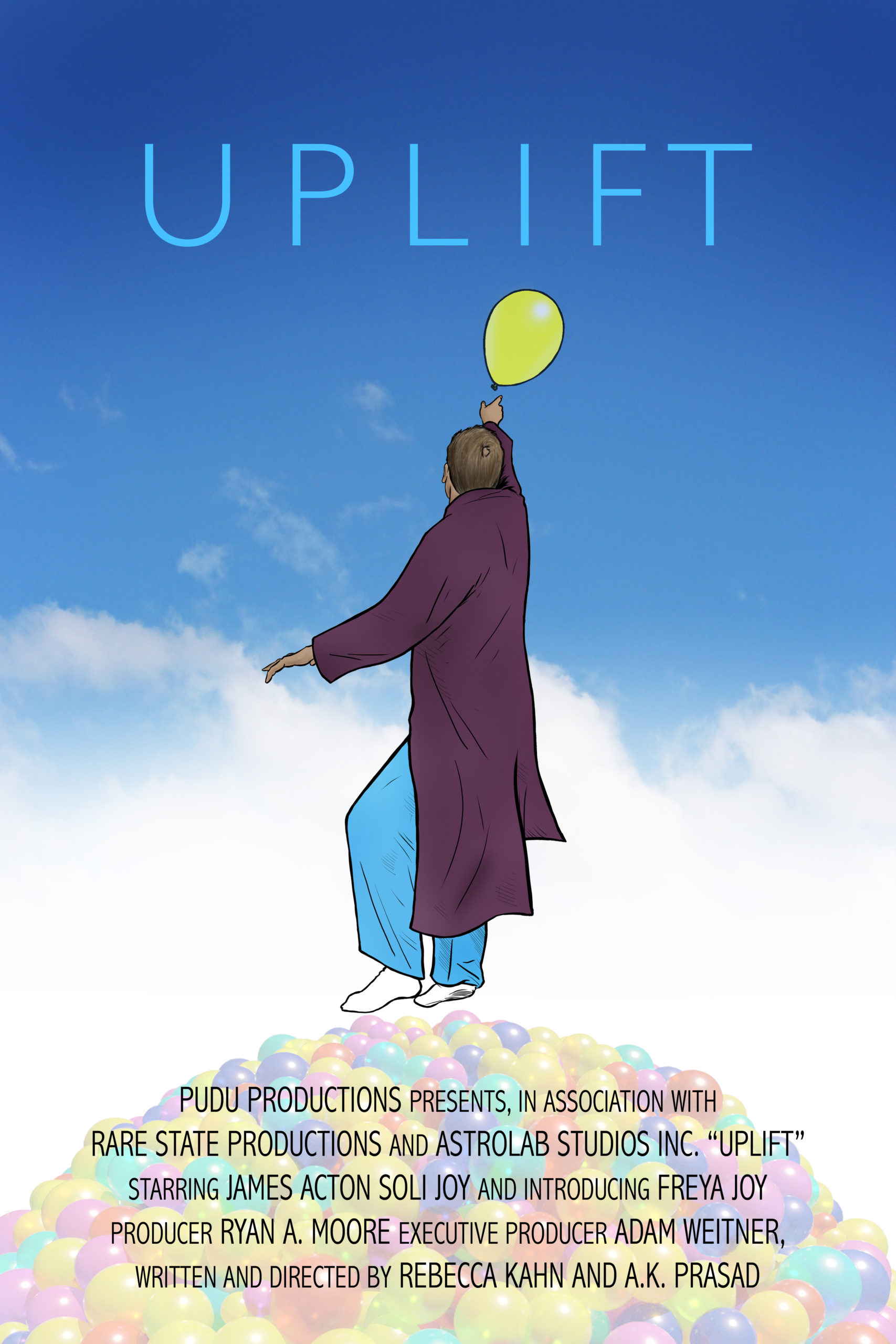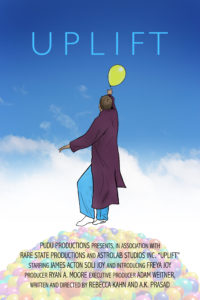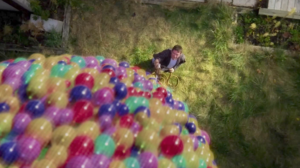
Short Film Review “Uplift”
WATCH THE FILM HERE
First, the Recap:
It is not straying too far into overstatement to recognize there is absolute desolation of soul where suffering an extreme loss is concerned. We never wish to relinquish that which we cherish. Then, when it not only occurs, but also comes about well outside the preconceived parameters in our minds and in the established reality this world generally dictates about the notion of living, the agony becomes more than we believe we can bear. For a father (James Acton), such truth is all too evident and manifest in the actuality of mourning his existence has now become. Yet, when a newscast spurs his mind to action, encouraging a moment of realization to honor that which is no longer, the results may or may not be what is best for that memory–or himself.
Next, my Mind:
Potent and harrowing is the undeniable power of overwhelming sadness, and with slowly building, initially unassuming, palpably visceral impact, this 11-minute short film effort from writing/directing duo Abhishek Prasad and Rebecca Kahn along with producer Ryan Moore and executive producer Adam Weitner puts an all-too-real and wholly necessary face to the issues of mental health and coping with inner torment, making a deftly convincing statement of just how important awareness for these truly needs to be. It’s the gift of indie cinema and the creatives behind it to showcase a willingness to tackle commonly addressed thematic explorations such as these, but do it in more relatable, realistic, and evocative ways so as to generate the post-film thinking and, ideally, long-lasting impressions which should then cause us as the viewer to ponder and consider tangible, associated actions if appropriate based on the narrative intent presented.
This critic says this to firmly indicate this film accomplishes that quite effectively and unflinchingly. Watching a grounded execution of themes like these can be, and really perhaps SHOULD be, unsettling to varying degrees dependent on the filmmaker’s purpose, at least I feel this is so from multiple efforts having been seen over time that involve similar foundational concepts. Again, that is most certainly achieved here as we venture down the agonizingly heart-breaking path one man finds himself on and the means that come about for him to try and find a way to alleviate the pain. Ideas of how we seek to re-connect with that which was taken away from us is another facet that is illustrated in multiple ways here as well, and it places within our reach an understanding of the real weight loss puts on even the strongest person. Being able to ultimately deal with this in more healthy, even constructive ways is the goal, not allowing isolation to dominate.
Throughout the film, it also arises that the need for support for anyone encountering overt anguish is a HUGE necessity and sometimes doesn’t happen like it should. We hear about mental health, suicide, and other related conditions fairly frequently in this contemporary world, even potentially to the point where we just might have become numb to it. This is definitely an objective of the narrative here–to jar us back into the fact that we should never, ever take mental health or those who are suffering in ANY way from it lightly, as trivial, or dare I say “expected”, given the chaotic state of our society today. How the particular scenario being played out here, much less in the abbreviated timeframe we’re talking, is executed was masterful to me in being able to paint an entire picture of loss’ effects on many levels, leading to a finale that WILL leave a resounding imprint on you, which as mentioned above, it SHOULD.
I do state this often when it comes to the acting in many an indie film that understatement often rules the day for how characters come across through the talent pool that plays them, and sure enough, we do get to see this at work once more thanks to a highly understated yet totally resonant performance from Acton as the grieving father here. Demonstrating so many of the elements, demeanors, and half-hearted actions that accompany the handling of agony, the man is just trying to find any purpose for getting through each day and managing the unthinkable. It seems worn-out routine has become the new norm, reflected in a disheveled appearance in both his own manner and the empty home around him. But, given sudden inspiration by a newscast he sees, the man seems to locate a new flicker of hope and carries forward accordingly. It’s an indelible statement made, and Acton embodies it the whole way with total, astute purpose and relevance that does justice to the story’s aims.
I have always felt that being able to carry a story pretty much on your own isn’t an easy task for an actor, especially when the subject matter is intense and emotionally volatile as it is here, but that is the mark of an excellent performance when they’re able to pull it off with believability, which Acton does wonderfully. Supporting appearances are made by Soli Joy, Freya Joy, Susana Borosic, Lorne J. Fortune, and Marc Gammal, and I always try to tip my hat to these additional roles, no matter how large or small they might be, as it all plays together to create the final product we get to see as the viewer, and everyone’s efforts should be acknowledged and appreciated. With that, and in total, “Uplift” is a needed film, speaking to topics that should be addressed and brought to our minds with enough frequency to prompt recognition, action, change, and perception to the plight of individuals who struggle with mental health conditions or could simply be experiencing circumstances as represented here. Either way, as human beings, we should all have a place to turn when these moments come, lasting or not, at minimum just to know we are not alone in the fight.
As always, this is all for your consideration and comment. Until next time, thank you for reading!




